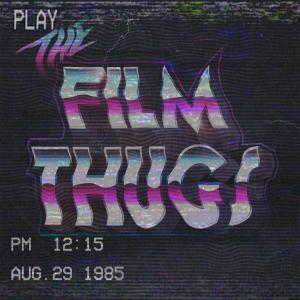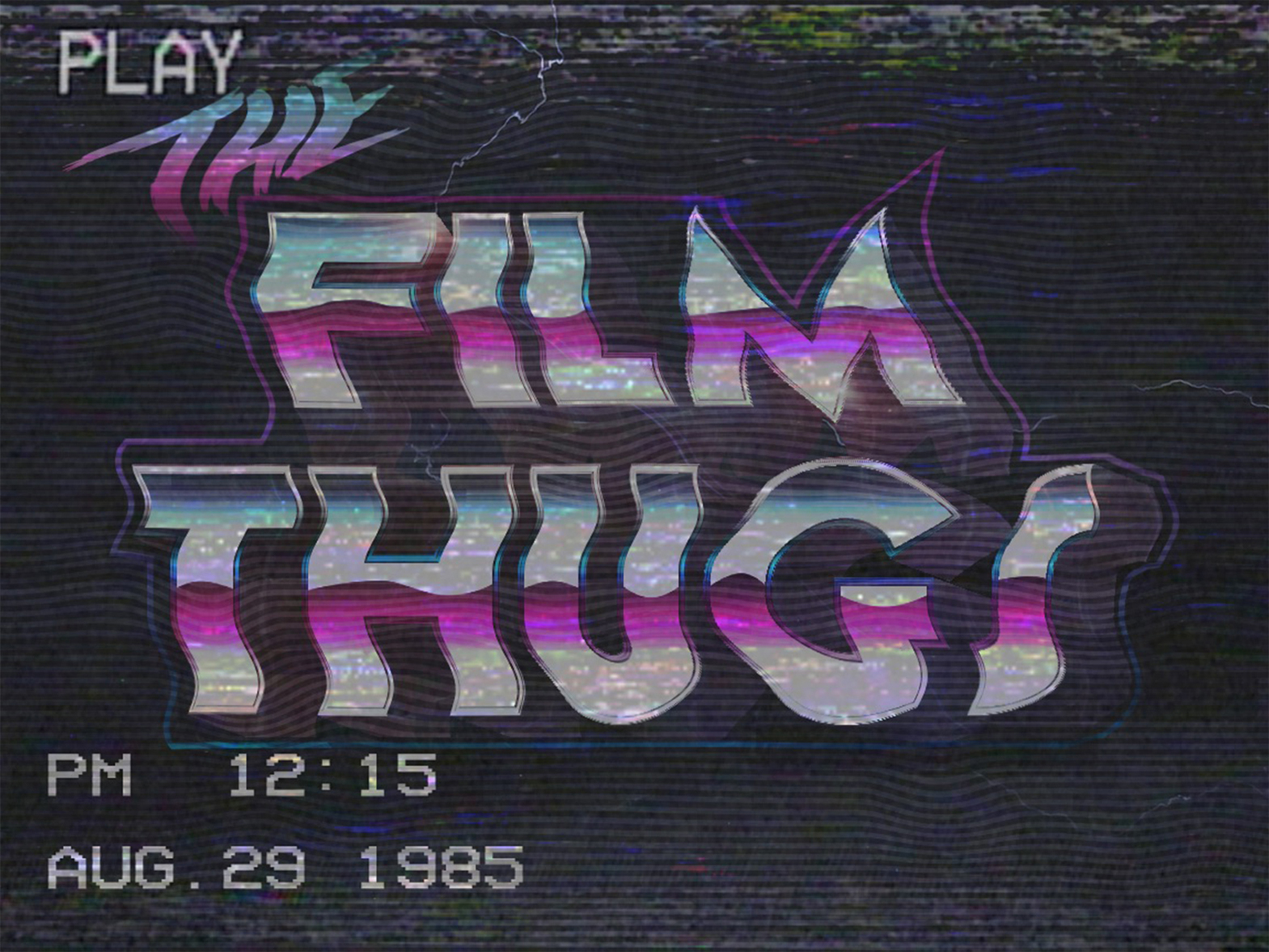Episodes

Friday Oct 22, 2010
Friday Oct 22, 2010
Austin Film Festival Day One Rundown
October 21, 2010
Note: This was written late at night after a VERY long day, so I might re-do some of this later.
1) Short Film Program 1
2) Exporting Raymond
3) Visual Storytelling panel with Randall Wallace, John Lee Hancock, and John August
Day one is down and I am loving this shit!! The following are not in chronological order, but rather in the order I want you to read them.
I'm starting with the shorts because I want to get some publicity out for them. There were some outstanding films in this series and I am going to go over the highlights.
Honestly people, stop watching Youtube videos of kids puking and cats falling down and watch some good shorts. If you don't think there are any here are a few suggestions.
1) Taste in Powder (w/d Mike MacRae)- Carbs are the new drug of choice in America.
This film is what short subject comedy should be. It starts with the type of asshole cokehead we have all had the misfortune to encounter at one point. You know the type, he thinks that the more annoyingly coked up he gets the more charming he becomes, then it shifts to his dealer who reveals a secret about his supply. It then becomes a short mocumentary about the worlds best (or possibly worst drug dealer). Essentially, if you do not like this movie it is because you are a joyless prick who hates to laugh. If that isn't a poster worthy blurb, I don't know what is.
2) I Love You Will Smith (w/d Bradley Jackson)- A discussion of Will Smith's latest movie leads to a psychological breakdown.
You know that friend of yours who loves to camp and cannot fathom why you don't share his enthusiasm? Well, this is what would happen if that friend loved Will Smith instead, and simply would not take, "I don't care for him," as an answer. This is another solidly hilarious film that is well worth you time.
3) 52 Takes of the Same Thing, Then Boobs (w/d T. Arthur Conan)- The most important aspect about filmmaking is a good story.
First thing's first. There are boobs, as promised, and those boobs are quite nice.
This is an interesting little experiment. A lovely young woman is asked the question
"What is the most important aspect about filmmaking," to which she replies,
" The most important aspect about filmmaking is a good story."
To which the off camera interview responds,
"Good. Now show us your boobs."
There are 52 different takes of this exchange, each one slightly different, put together to create a rather hypnotic experimental film. Check it out, you'll come for the boobs, but you'll stay for the inventive filmmaking. Yet another poster worthy line, if I do say so myself.
4) Ollie Klublershturf vs the Nazis (w. Damon Lindelof, d. Skot Bright)- A ten year old fights off the most evil group of people in the world, all while eating dinner.
So, this movie has some pretty heavy star power.
Chris Hemsworth (Kirk's dad in Star Trek), Norman Reedus (Boondock Saints), Samm Levine (Freaks and Geeks), Lainie Kazan (My Big Fat Greek Wedding), George Segal (you shouldn't need a reference here, but I'll go with Carbon Copy), and Rachel Nichols (G.I. Joe) star in this hilarious time travel comedy.
However, all of these people are flatly upstaged by Zach Mills as Ollie Klublershturf, the young genius trying to keep a group of Nazi's from stealing his time machine for nefarious purposes. Oh, and best use of a fart sound I can think of.
5) Make a Wish (w/d David Ward)- He may or may not hit a home run for you, it just depends.
The idea of a sick/dying child asking his favorite baseball player to hit a home run for him is as old as baseball and sick/dying children. What would happen if the aforementioned kid was a bit of a degenerate and had an ulterior motive? Very good idea, very good execution.
6) Pitch Perfect (w Brad & Zach Anner, Chris Demarais, Marshall Rimmer. d Chris Demarais, Jason Harter.)- When a pitcher starts losing steam at the biggest game in all of history he goes to his coach for some advice.
This one is beautifully perverse, and very well done.
There was another one about people having sex with puppets that was quite good, but it's for some reason not in my program. If I find out what it was I will post more.
2) Exporting Raymond
Writers can often form a strange relationship with their own work and sometime it can be hard to let it go. Follow Phil Rosenthal, creator of the hit TV series “Everybody Loves Raymond," in this incredibly funny true story of the attempt to translate “Raymond” into a Russian sitcom. A hilarious, warm and intimate journey of one man, considered an expert in his country, who travels to a land to help people that don’t seem to want his help. Lost in Moscow, lost in his mission, lost in translation, Phil tries to connect with his Russian colleagues but runs into unique characters and situations that conspire to drive him insane. The movie is a true international adventure, a genuine, “fish out of water” comedy that could only exist in real life.
I know what you're thinking. "But I don't like 'Everybody Loves Raymond! Why would I want to watch this?"
To which I reply, to your first point, "You are an asshole. It is a very good show, stop being an elitist prick and just enjoy yourself!"
To your second, I reply, "You want to see this because it is, quite frankly, one of the funniest, sharpest, and completely entertaining documentaries I've ever seen."
This is, in my opinion, the best documentary of the year. We follow Rosenthal from the original idea to the other side of the world as he tries to tune his show to fit the Russian sensibility, work in a creative environment that makes no sense to him, and deal with the absurd logistics of working in Russia.
I cannot count the number of absolute laugh out loud moments in this film. Be it dealing with the new head of network comedy (a man who knows a significant amount more about lasers than comedy), trying to get the head of the Moscow Art Theatre to allow one of his actors to appear in the show (The Moscow Art Theatre is where Stanislavski did his writings on "the method," and Chekov premiered "The Seagull"), or attempting to translate the delicate physical comedy of a nut shot this movie has no shortage of genuinely funny moments. (At one point a joke about a "Fruit of the Month Club," had to be changed to "Water of the Week" because there is no "Fruit of the Month Club" in Russia... but apparently "Water of the Week" is a booming industry.)
There are some touching scenes as well, Rosenthal bonding with his bodyguard (who would have preferred to have spent his life writing about sea shells), and spending an evening with a Russian family (and seeing just how similar we really are) add a nice emotional weight to the otherwise light proceedings.
You could not write comedy this brilliant or moving. The film basically asks the question, "How difficult is it to let go of something you spent years of your life creating and let someone else make it their own."
If you only see one documentary in the next two years, do yourself a favor and see this one.
3) Visual Storytelling panel with Randall Wallace, John Lee Hancock, and John August
Here is a brief transcript of my notes from this panel:
Be precise and provocative- Sparce
Int- Joe's apartment- Shitty
One line, avoid large blocks of writing.
Allow anyone to get it, write feelings, not details. Go for tone.
Don't mention things too much.
Interesting images
Don't direct from the page
Randall (Braveheart-Bay)
Told to drop the "Jayne Austen Fag Shit"
When explained as subtext Bay said, "Yeah, that shit!"
Wallace replied, "You don't get it because your idea of foreplay is 'See my Ferrari? Want to fuck?" (Bay replied, "Yeah!") He can't complain, "I've cashed every Pearl Harbor check."
Blake Edwards, who wrote and directed, as a director would curse about the writer.
The less you say the more you remember and the smarter your characters sound.
Write a scene without dialogue, convey it visually.
Hand write first draft on the backs of old scripts, scribble them out quickly.
Characters must have a moment when they define who they are. "Cross this line and I will fight you to the death."
These moments often come when you are removed from writing, the story is alive inside you. (The Shining, "You hear that sound," as he bangs on the typewriter, "When you hear that sound I'm working. When you don't hear that sound I'M STILL FUCKING WORKING!)
Single focused image.
Books and short stories have back story- films are about what is happening now.
Leave a mystery. Show scars that you don't explain.
Fragments in action scenes are ok.
People will remember almost nothing of what you say, a little more of what you do, but they will remember how you make them feel.
Funny moment:
A guy asked a rambling 5 minute question that a Hancock summarized as, "What do you do when a character talks too much?" I love irony.
His response, give him less screen time.
Show reaction rather than talking: Brian Cox in "The Rookie" He closes his eyes and communicates everything you need to know in that moment.
Never direct with adjectives, direct with verbs. Tell them what to do, not what feeling to show.
Replace dialogue with action.
Silence should be louder than words.
So, that wraps up day one. Join me tomorrow when I will have my thoughts on "Blue Valentine," and "Peep World."

No comments yet. Be the first to say something!